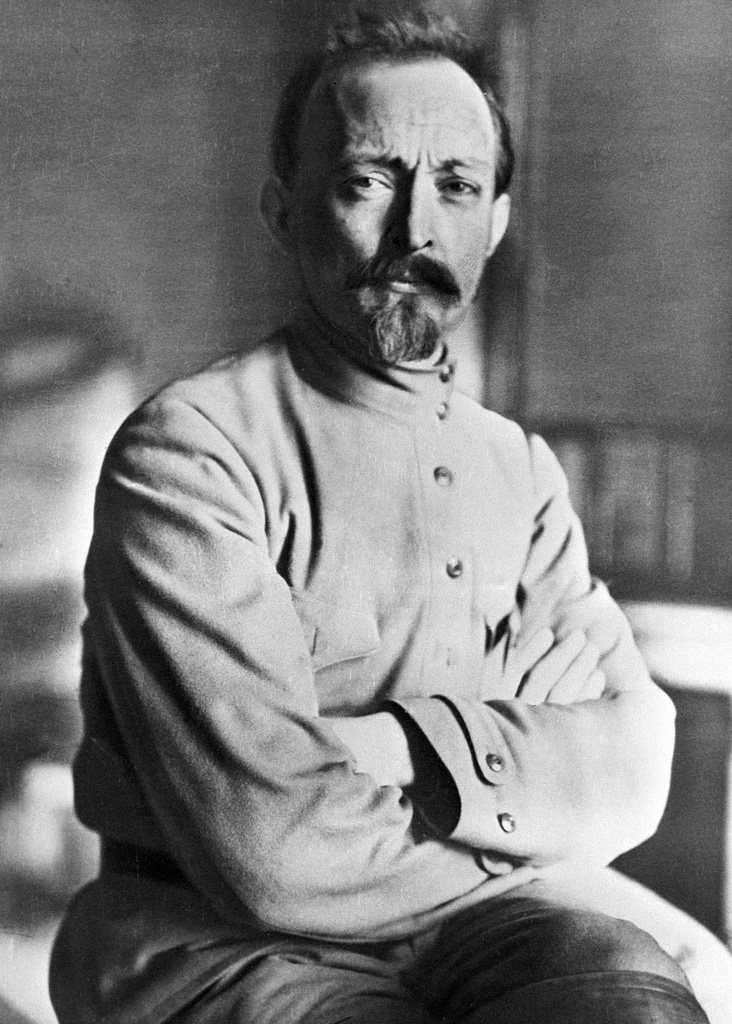Felix Dzerzhinsky
 Felix Edmundovich Dzerzhinsky (; ;.}} – 20 July 1926), nicknamed "Iron Felix", was a Soviet revolutionary and politician. From 1917 until his death in 1926, he led the first two Soviet secret police organizations, the Cheka and the OGPU, establishing state security organs for the Bolshevik regime. He was a key architect of the Red Terror and de-Cossackization.
Felix Edmundovich Dzerzhinsky (; ;.}} – 20 July 1926), nicknamed "Iron Felix", was a Soviet revolutionary and politician. From 1917 until his death in 1926, he led the first two Soviet secret police organizations, the Cheka and the OGPU, establishing state security organs for the Bolshevik regime. He was a key architect of the Red Terror and de-Cossackization.Born to a Polish family of noble descent in the Minsk Governorate of the Russian Empire (now in Belarus), Dzerzhinsky embraced revolutionary politics from a young age, and was active in the Social Democracy of the Kingdom of Poland and Lithuania party. Active in Kaunas and Warsaw, he was frequently arrested and underwent several exiles to Siberia, from which he escaped every time. He evaded the tsarist secret police, the Okhrana, whose work he took interest in. Dzerzhinsky participated in the failed 1905 Revolution, and after a final arrest in 1912, was imprisoned until the February Revolution of 1917. He then joined Vladimir Lenin's Bolshevik party, and played an active role in the October Revolution which brought them to power.
In December 1917, Lenin named Dzerzhinsky head of the newly established All-Russian Extraordinary Commission (Cheka), tasking him with the suppression of counter-revolutionary activities in Soviet Russia. The Russian Civil War saw a vast expansion of the Cheka's authority, inaugurating a campaign of mass arrests, detentions (including in newly founded Gulag forced labour camps), and executions known as the Red Terror. An estimated 50,000 to 200,000 people were executed by the Cheka during the years of the civil war. The agency was reorganized as the State Political Directorate (GPU) in 1922, and then as the Joint State Political Directorate (OGPU) a year later, with Dzerzhinsky remaining as head of the powerful organization. He served as director of the Supreme Soviet of the National Economy (VSNKh) from 1924.
Dzerzhinsky died of a heart attack in 1926, and was buried in the Kremlin Wall Necropolis. Remembered by secret police agents (known as "Chekists" throughout the Soviet era) as a hero of the revolution, a large statue of him stood in front of the security service headquarters at Moscow's Lubyanka Building until 1991. Meanwhile, he also became a prominent symbol of repression and brutality to critics of the Soviet regime. Provided by Wikipedia
-
1